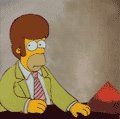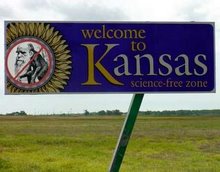
So another huge bricks and mortar chain goes bust, this time Toys R Us, or at least their UK operation. Around 106 stores look set to close within weeks, with a loss of over 3000 jobs.
So what happened? Well it looks like many different reasons, all fairly predictable in hindsight.
Toys R Us landed in the UK in 1985, scything the competition, including many small independent shops which simply couldn't compete with Toys R Us huge stores and buying power. And for about 15 years, their business model reigned pretty much supreme. The famous TV advert was rolled out every Christmas and thousands flocked to the giant stores, packed full of the latest, the strangest and the most classic toys. Many left with trollies full of purchases and it looked like the success would never end.
But around 2005, things began to change. The chain loaded itself with debt thanks to private equity companies and rivals such as Smyths and The Entertainer began to muscle in on their market. But much worse was the steady march of the internet, particularly a site called Amazon. It grew slowly at first, but by 2009 or so, people were beginning to shop seriously online. After this year, Toys R Us only turned a profit once more in the UK.
Rather than taking drastic action, the chain stood still. Their stores looked exactly the same as they had in the 80s and 90s, basically giant sheds with lots of toys, but no edge, no welcome and ultimately no hope. Debts mounted, rivals improved and Amazon boomed, yet Toys R Us stayed the same.
By 2017, things were critical. Too late, they experimented with smaller shops in more central locations. These seemed to work and began to outperform the out of town sheds. But the debt pile was too great and the recovery too small. The parent US company filed for bankruptcy in October 2017, while a rescue plan around the same time in the UK seemingly bought some breathing space. 26 stores were earmarked for closure and began running down. There was however hope for the rest.
But Christmas trading was bleak, down 9% on the previous year and a huge VAT bill was looming. Frantic attempts to find a buyer failed and on the last day of February 2018, faced with an impossible VAT bill of £15 million, the company admitted defeat and went into administration.
As of now, every store is having a closing down sale. I went to ours last night. The darkness and pouring rain were all too appropriate. The store had barely changed since my last visit several years ago. Perhaps a dozen people were half heartedly browsing and a few downcast staff milled around. The sale featured reductions of 20, 25 or at most 30%, even then probably still dearer than Amazon. I walked around and out again in less than five minutes, the 'see you soon' sign at the exit unbearably poignant.
It's always sad to see a shop closing, most of all for the staff, but there's something particularly heartbreaking about a toy shop. Even a soulless commercial enterprise like this one. It represents so many childhoods, so many memories. Even the TV ad will be sadly missed at Christmas.
Could things have been different? Undoubtedly yes. Less complacency, less debt, more and faster downsizing, more interactive customer experience. And yet these things may have only delayed the inevitable.
The public are changing. They don't shop as much. They don't hoard as much. They still buy but increasingly online. They need reasons to go out shopping. Cold warehouses, depressed staff, high prices and in many cases parking charges, all put people off. Why bother when a few clicks can see things delivered to your door the next day?
So can the high street survive? So many shops and chains are struggling under huge rents, huge council tax, increasing wages and overheads, all in the uncertain shadow of Brexit. Add to that cumbersome debts and the unstoppable power of the internet and the future looks bleak. Will physical shopping be something that parents tell their future kids about? A footnote in modern history? I certainly hope not.



